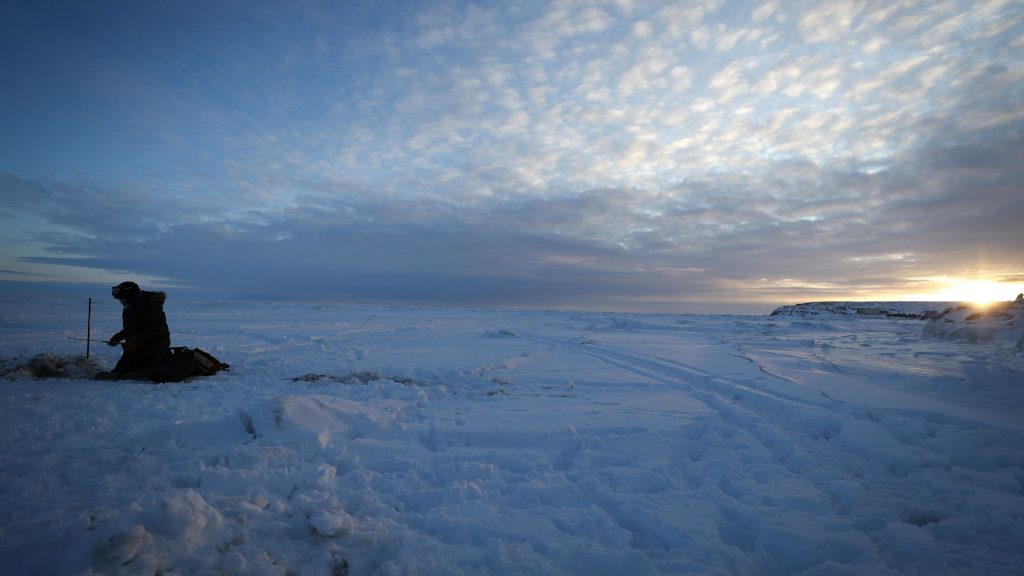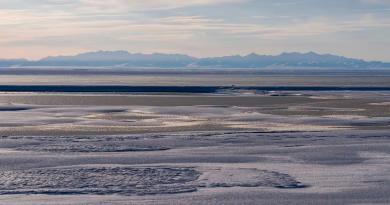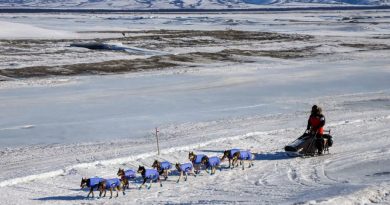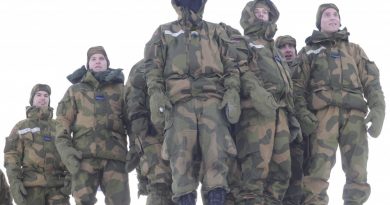Network in Alaska centering Indigenous knowledge in Arctic climate research

A network of Arctic observers spanning nearly all of Alaska’s northern coast is helping to center Indigenous knowledge in climate change research.
The Alaska Arctic Observatory and Knowledge Hub is comprised of local Iñupiaq observers from Kotzebue to Kaktovik who work with University of Alaska Fairbanks researchers to document how the Arctic is changing.
“Observers have seen some really big environmental changes, but they’re also documenting what that means for the community in terms of traditional activities,” said Donna Hauser, lead scientist for the network.
That can be everything from climate change’s impacts on berry picking to hunting seals.
On a daily or weekly basis, observers send in their notes on sea ice and wind conditions, air and water temperatures, animals and community activities. Researchers then compile the information in a database. Since 2006, AAOKH and its predecessor, the Seasonal Ice Zone Observing Network, has collected 10,000 observations.
Paper included in Arctic Report Card
AAOKH observers also co-authored a paper on their contributions to Arctic climate science that was included in the National Oceanic and Atmospheric Administration’s Arctic Report Card, released last week.
Roberta Glenn-Borade, AAOKH project coordinator, said the network has helped center the needs and perspectives of communities on the frontlines of climate change.
“Rather than having these narratives framed by outside researchers who have kind of an understanding about Alaska or Indigenous people, but don’t quite hit the mark in telling the story, “ Glenn-Borade said. “What we do is allow the observers, their observations, knowledge and expertise to tell the story.”
Wind changes being tracked
Glenn-Borade said by collecting year-round data on the ground, AAOKH has been able to track the impacts of climate change that current climate research isn’t focusing on. One example is how changing winds are making travel in the Arctic more difficult.
“If it’s blowing all the snow off the tundra, then you’re not able to ride your snow machine out to go hunting. Or it’s affecting the sea ice and traveling on the sea ice,” she said.
Glenn-Borade said she’d like to see more funding dedicated to promoting Indigenous knowledge within Western science. AOK is currently looking at ways to expand and make its data more accessible to Arctic communities.
Related stories from around the North:
Canada: Isolated and expensive, the N.W.T.’s Sahtu riding feels squeeze of climate change, CBC News
Finland: Sámi knowledge helps developing climate policies, The Independent Barents Observer
Greenland: Canada and Greenland sign letter of intent on marine conservation area in Arctic, Eye on the Arctic
Russia: Oral histories unlock impact of climate change on nomadic life in Arctic Russia, says study, Eye on the Arctic
United States: Warming North pushing earth into “uncharted territory”: Arctic Report Card, Eye on the Arctic



